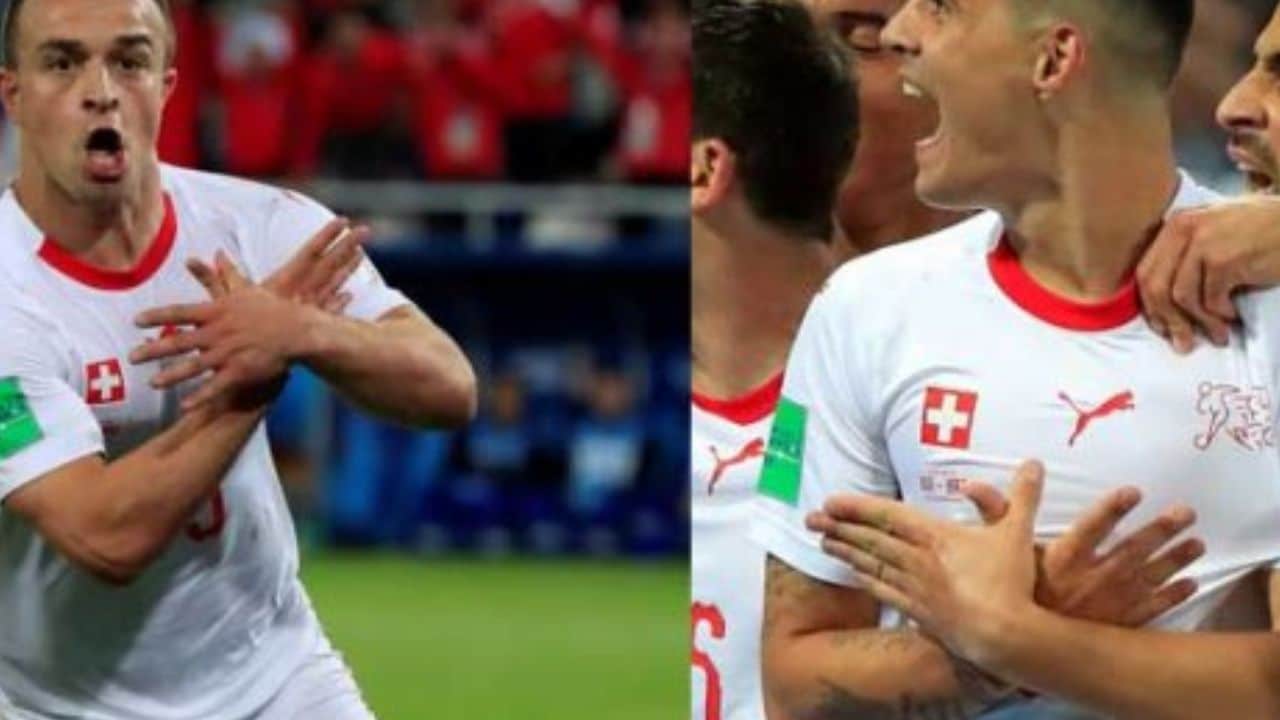Here is an explanation of the significance of the Albanian Double Eagle Celebration, have a look at its meaning and gesture
Thursday night’s World Cup encounter between Switzerland and Serbia was crucial for Group G, but for many of the players, this game signified much more. Indeed, there are several geopolitical subplots in this game involving several Switzerland players of Albanian descent, particularly Xherdan Shaqiri and Granit Xhaka.
Albanian Double Eagle Gesture And Celebration Meaning
Situasi panas juga terjadi di bangku penonton.
Seorang wanita perlu dikawal ke luar lapangan karena ia memamerkan simbol double-eagle, Albania (sesama bekas Yugoslavia) kepada pendukung Serbia.pic.twitter.com/c3VqJFbtBl
— SPORT7 (@sport7trans7) December 2, 2022
Meanwhile, Switzerland won 3-2 against Serbia and is set to face Portugal next.
When they (Switzerland and Serbia) met in 2018, the pair both scored against Serbia, and they celebrated with the somewhat contentious “Albanian Eagle” celebration. But what does this gesture signify? Have a look at the meaning below:
What Did The Arabian Eagle Celebration Mean?
This celebration’s symbolism is rather straightforward. The eagle on the Albanian flag is supposed to be represented by the hands crossed and stretched forth. The hand motion is similar to the double-headed eagle on the Albanian flag and is also connected to the ethnicity of Albanians, who refer to themselves as “Shqiptar” (son of the eagle) and their nation as “Shqipri” (land of eagles).
But why are Swiss players cheering while waving an Albanian flag? Players like Shaqiri and Xhaka were actually born in the repressed ethnically-Albanian part of the former Yugoslavia, where the Serbian majority at the time was. During this time, more than a million Kosovars and Albanians were forced from their homes, including the families of Xhaka and Shaqiri who emigrated to Switzerland.
Shaqiri and Xhaka would grow up playing for the Swiss team, but they made sure to let the Serbians know back in 2018 that their ties to Albania and Kosovo have always been a part of who they are. Currently, a rematch has been set for Qatar, and if any Swiss players of Albanian or Kosovan ancestry score and celebrate in this way, tensions may flare up once more.
FIFA fined Xhaka and Shaqiri in 2018 for their celebrations to prevent any political messaging during the World Cup, but it is unclear whether that punishment will prevent any Swiss players from celebrating in that manner this year.



